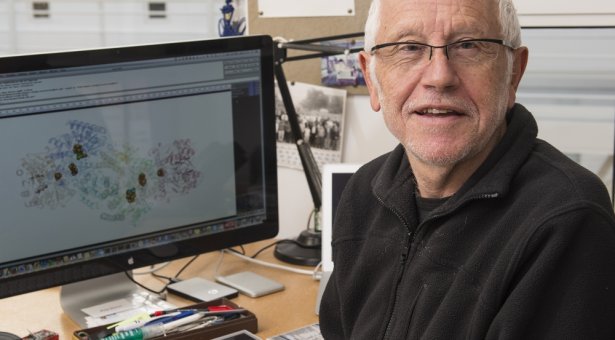Prestigious prize hails half a century of ground-breaking research

Professor Ray Dixon FRS has received an international award for pioneering research to develop more sustainable agriculture practices worldwide.
Professor Dixon is the recipient of the Adam Kondorosi Academia Europea Award for Advanced Research.
The award, named in honour of the late Professor Adam Kondorosi, recognizes revolutionary discoveries in symbiosis and related fields.
In a career spanning nearly 50 years Professor Dixon has increased molecular understanding of biological nitrogen fixation (BNF) in bacteria and how this might be applied to growing cereals more sustainably.
The award will be presented on October 24 at a ceremony in Barcelona when Professor Dixon will deliver the lecture: “Engineering Biological Nitrogen Fixation for Agricultural Benefit.”
“I am honoured and delighted to become the latest recipient of this prestigious award,” said Professor Dixon, a group leader in Molecular Microbiology at the John Innes Centre and a director of the JIC-CAS Centre of Excellence in Plant and Microbial Science (CEPAMS).
The practice of applying chemical fertilizers to increase crop yields has had an enormous impact on world agriculture but has resulted in severe agronomic and environmental penalties including eutrophication of water courses and an increase in atmospheric pollution.
To deal with this environmental damage caused by nitrates from fertilizers, Professor Dixon’s work investigates how the natural process of biological nitrogen fixation could be harnessed to deliver a more sustainable alternative.
Professor Dixon investigates two approaches to enable cereals to benefit from BNF in a way that overcomes the nitrogen problem: the engineering of bacteria that can excrete ammonia as a nitrogen source for plants and secondly the direct engineering of the nitrogen-fixing enzyme, nitrogenase, into cereals.
The award was presented for the first time in September 2017 to Professor Allan Downie of the John Innes Centre for his work on Rhizobium-legume interactions.



